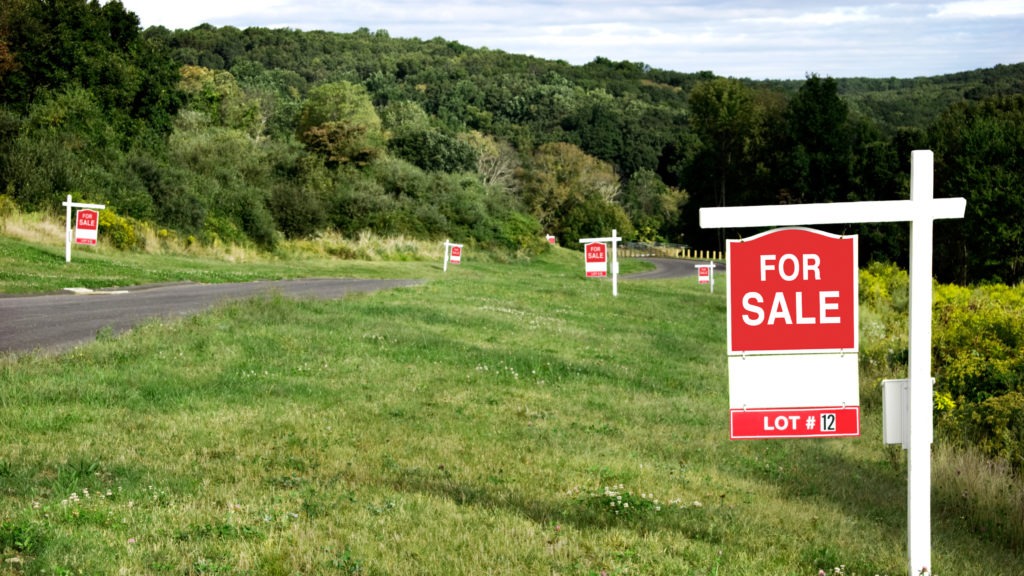How to Buy Land in Nigeria — The Complete Guide (2025)
Planning to buy land in Nigeria in 2025? Just before the year ends? Discover the complete guide: step-by-step process, documents required, costs, legal framework, and mistakes to avoid when buying land.
Buying land in Nigeria is one of the smartest financial moves you can make in 2025. With rising demand for housing, urban expansion, and property values that keep appreciating, land ownership is a proven path to building long-term wealth.
But the process isn’t always straightforward. From verifying ownership to navigating land laws, many buyers have fallen victim to fraud and “omo onile” (land grabber) scams. That’s why you need a clear, step-by-step guide that shows you how to buy land in Nigeria safely and legally.
This complete 2025 guide will walk you through the process, required documents, costs, and city-by-city insights so you can make an informed purchase.

Why Buying Land in Nigeria Is a Smart Investment in 2025
Land is one of the few assets in Nigeria that never depreciates. Instead, it appreciates as demand for housing and development increases.
- In cities like Lagos and Abuja, prime land has appreciated by over 150% in the past five years.
- Emerging markets like Ibadan, Enugu, and Owerri are offering affordable options with high future returns.
- Owning land also provides opportunities for building, leasing, farming, or resale at profit.
Simply put: land remains one of the safest and most rewarding investments in Nigeria today.
Types of Land in Nigeria
Before you buy, you need to know the category of land you’re dealing with:
- Residential Land – This is for housing estates or personal homes.
- Commercial Land – For businesses, malls, hotels, or offices.
- Agricultural Land – For farming and food production.
- Government Land – Allocated by government; requires strict approval.
- Family Land – Common in rural or semi-urban areas; often needs careful verification.
Understanding the type of land helps you know the documentation and restrictions involved.
Step-by-Step Process of Buying Land in Nigeria
Buying land in Nigeria can be safe and stress-free if you follow these steps:
1. Identify Your Budget and Location
Decide how much you can afford and which city suits your goals — For example, Lagos is for high ROI, Abuja for prestige, Ibadan for affordability, or Enugu for steady growth.
2. Conduct Proper Site Inspection
Never rely on pictures or hearsay. Make sure that you visit the land physically, check accessibility, neighborhood, and ongoing development in the area.
3. Verify Land Ownership
Confirm that the seller is the rightful owner because people now sell lands that doesn’t belong to them to make more money for themselves. Conduct a search at the State Land Registry to ensure the land is free from disputes, government acquisition, or multiple sales.
4. Confirm the Survey Plan & Land Use
Check the survey plan to confirm boundaries and ensure the land is not under government acquisition. If it is marked “global acquisition,” it may not be safe to buy.
5. Draft and Sign a Sales Agreement
Work with a qualified lawyer to prepare a Deed of Assignment or Sales Agreement. Both parties should sign in the presence of witnesses.
6. Make Payments Properly
Always pay through traceable means (bank transfer), and collect receipts for all transactions.
7. Perfect Your Title Documents
Register your land with the government, obtain Governor’s Consent, and keep all paperwork safe. This step secures your ownership legally.

Important Documents Required
To successfully buy land in Nigeria, these documents are essential:
- Deed of Assignment – Transfers ownership from seller to buyer.
- Survey Plan – Shows the exact boundaries and location.
- Certificate of Occupancy (C of O) – This is issued by the state government.
- Governor’s Consent – Required when land is transferred.
- Receipt of Purchase – Proof of payment.
Note that without these, your ownership is not fully secure.
Legal & Regulatory Framework
The Land Use Act of 1978 governs land ownership in Nigeria. It places all land under the control of the state governor, who grants rights of occupancy.
This means:
- Buyers must obtain Governor’s Consent after acquiring land.
- Land without proper documentation can be revoked by the government.
Hidden Costs to Consider
Many first-time buyers forget that land purchase involves extra costs, such as:
- Survey fees (₦150,000–₦500,000 depending on location)
- Legal fees (5–10% of land cost)
- Stamp duty & registration fees
- Agency fees (if buying through an agent)
Mistakes to Avoid When Buying Land in Nigeria
- Skipping proper verification at the land registry.
- Paying cash without receipts.
- Buying family land without the consent of all family heads.
- Ignoring hidden charges.
- Trusting verbal promises instead of legal documents.
City-by-City Land Buying Guide (2025)
- Lagos: High demand, expensive, but excellent long-term ROI (Lekki, Ibeju-Lekki, Epe).
- Abuja: Government-driven demand, expat interest, premium locations (Gwarinpa, Lugbe, Katampe).
- Ibadan: Affordable with fast urban expansion.
- Enugu: Eastern hub with growing demand for residential estates.
- Port Harcourt: Attractive for industrial and oil-sector workers.
- Owerri & Uyo: Emerging cities with affordable land and strong growth potential.
Checklist Before You Pay
- Verify ownership at the Land Registry.
- Inspect the land physically.
- Confirm survey plan and land use.
- Hire a lawyer for the Deed of Assignment.
- Pay through traceable means.
- Obtain receipts and agreements.
- Register and secure Governor’s Consent.
Frequently Asked Questions
1. What documents do I need to buy land in Nigeria?
Deed of Assignment, Survey Plan, C of O, Governor’s Consent, and purchase receipts.
2. How much does land cost in Nigeria in 2025?
Prices vary by city, from ₦1.5M in some parts of Ibadan to ₦50M+ in prime Lagos locations.
3. Can foreigners buy land in Nigeria?
Yes, but they must comply with Nigerian land laws and obtain approvals.
4. What is the safest way to buy land?
Work with a trusted lawyer, verify at the land registry, and obtain all legal documents.
Conclusion
Buying land in Nigeria in 2025 is a powerful investment decision but only if you do it right. By verifying ownership, securing documents, budgeting for hidden costs, and working with professionals, you can avoid costly mistakes and secure your future.
If you’re ready to buy verified land in Lagos, Abuja, Ibadan, Enugu, or any Nigerian city, contact us today for safe, trusted, and transparent transactions.
